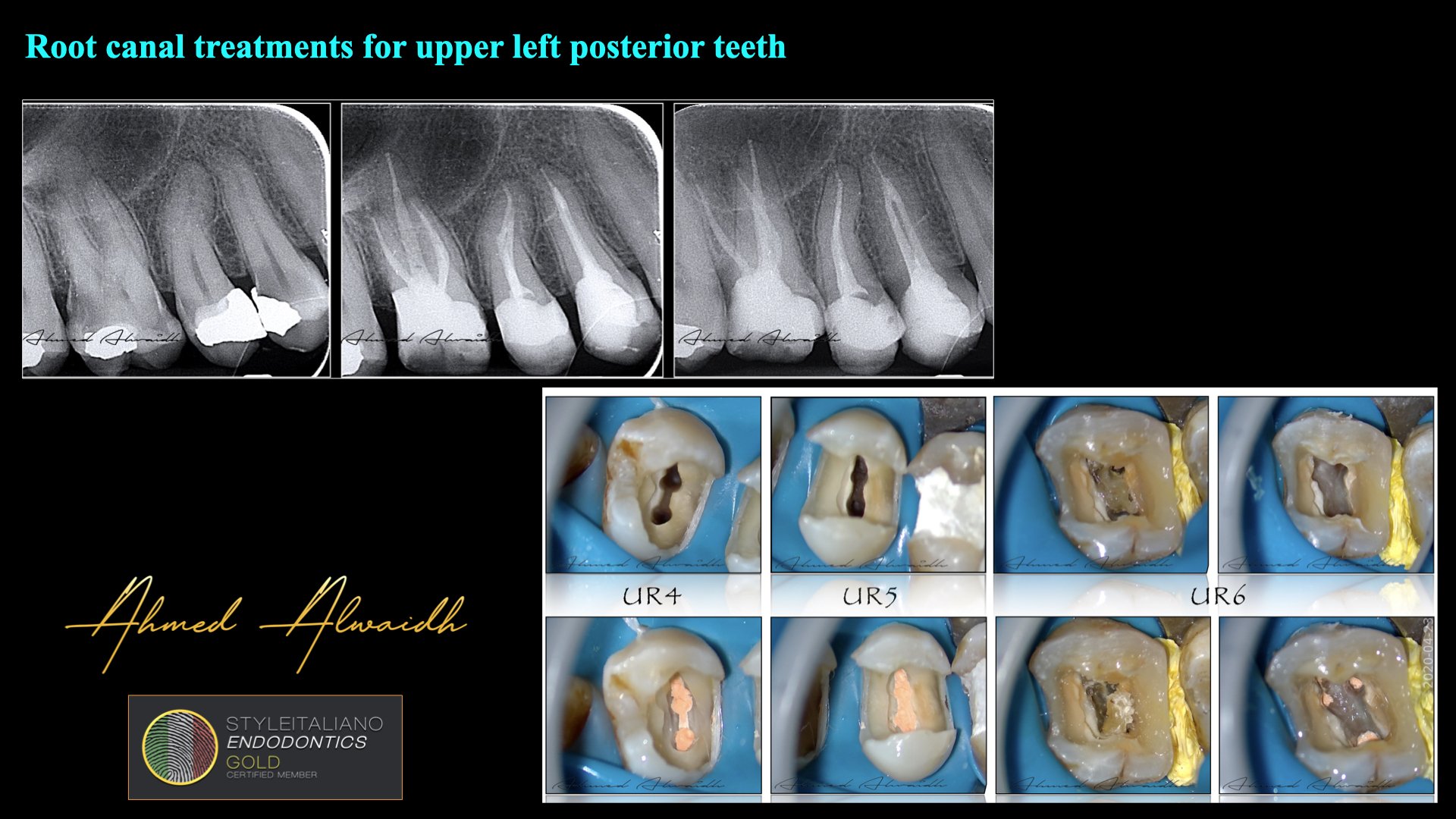Root Canal Treatment/ Retreatment
Dr. Ahmed Alwaidh BDS, MSc
Root canal treatment is a procedure used to save a tooth with infected or damaged pulp. Traditional root canal treatment involves removing the infected pulp, cleaning and shaping the root canals, and filling them with a biocompatible material.

We offer advanced root canal treatment/ retreatment in which we utilize advanced techniques and technologies, including:
Microscopic Endodontics: A high-powered dental microscopes is being used to magnify the tooth's structures and enhance visibility during treatment. This allows for precise and thorough cleaning of the root canals.
Digital Imaging: Advanced imaging techniques like cone-beam computed tomography (CBCT) provide detailed 3D images of the tooth and surrounding structures. This aids in accurate diagnosis and treatment planning.
Rubber Dam: is a thin sheet or barrier placed around a tooth or teeth to isolate them from the rest of the oral cavity. The rubber dam creates a dry and clean working environment, providing several benefits like moisture control, infection control, patient comfort, and improved efficiency.
Rotary Endodontics: This technique uses motorized instruments to clean and shape the root canals more efficiently and effectively than traditional hand files. It can result in faster and more precise treatment.
Obturation Techniques: Advanced techniques for filling the root canals with biocompatible materials, such as bioceramics and thermoplasticized gutta-percha help ensure complete and hermetic sealing of the canals, promoting successful healing, preventing reinfection, and decreasing post-operative pain and discomfort.
Regenerative Endodontics: In some cases, advanced techniques may be used to regenerate dental pulp and tissues, allowing for the potential restoration of a tooth's vitality.
These advancements in root canal treatment improve the precision, efficiency, and success rates of the procedure, leading to better outcomes and preserving the natural tooth whenever possible. It's always best to consult with a qualified endodontist to determine the most appropriate treatment approach for your specific dental condition.





